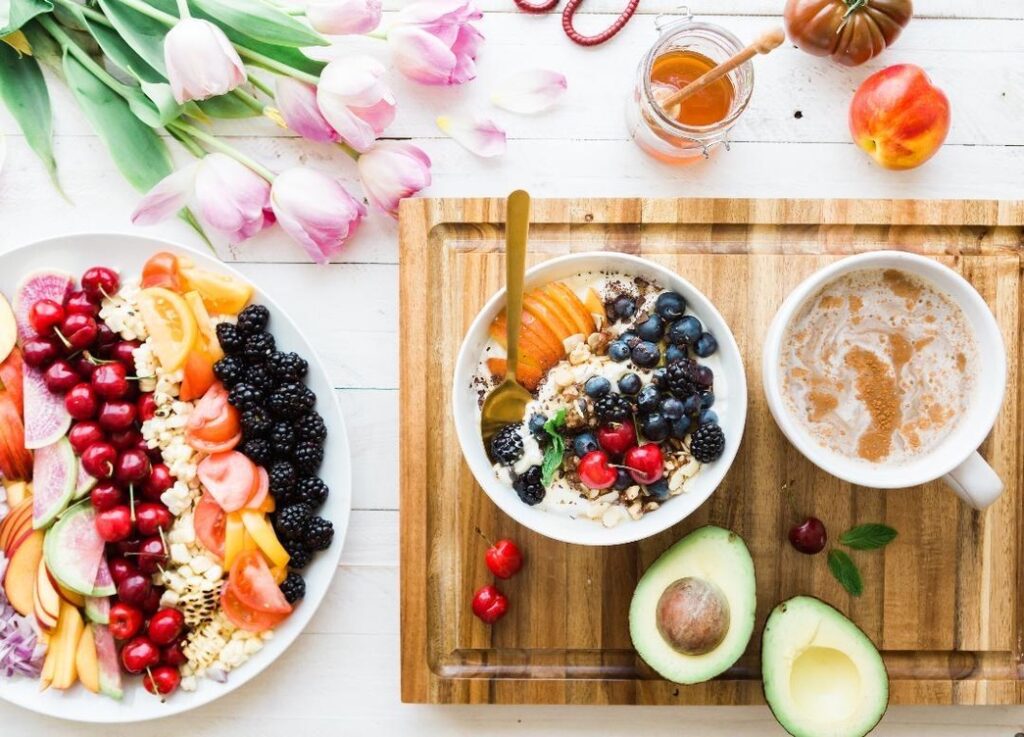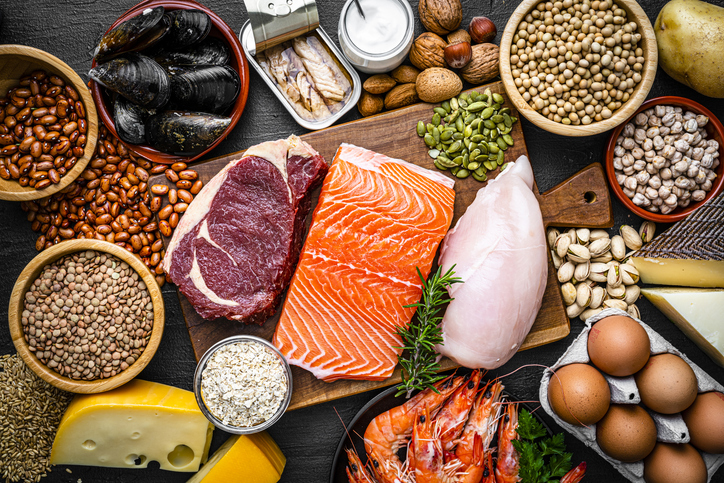I am often asked by my clients and readers if going plant based puts them at risk for being protein deficient. Absolutely not! You can definitely get enough protein if you are plant based -but it is important to be aware of the basics.
Proteins are made up of building blocks called amino acids. Your body requires these amino acids to repair muscles, produce hormones and enzymes, to stabilize blood sugars and to boost metabolism and increase fat burning. Proteins are also essential in reducing cravings and hunger levels.
There is a misconception that you can’t get enough plant based protein to do all the important jobs in the body. When people think of protein – they think of chicken, fish and read meats. However, there are quality plant based proteins that are a great source whether you are vegan or vegetarian.
A varied diet rich in vegetables, whole grains, legumes, soy, nuts and seeds can provide the amino acids your body needs. Even if you are not vegan or vegetarian, including plant-based protein sources in your meals is a healthy option that is good for you and for the environment. Generally, plant-based proteins are also rich in fibre, which is beneficial for a healthy gut microbiome.
How much protein is enough?
On average – it is recommended to consume approximately 25-30% of your total daily caloric intake from high quality proteins. Another calculation used is to use the recommended daily allowance (RDA) for protein which recommends consuming 0.8 grams of protein for every kilogram of body weight. On average, based on the RDA, the average male who weighs 154 pounds should consume approximately 56 grams of protein per day, while the average female who weighs 110 pounds should consume approximately 40 grams of protein per day.
Many nutritional experts feel the RDA for protein is far too low and is only suitable for sedentary adults. For those who are active, insulin sensitive, overweight or seeking weight loss or are in their teenage years, the amount of protein should be higher. If this is the case, you will likely need to increase your protein intake from the RDA’s recommendation of 0.8 g/kg to 1.2-1.8 g/kg. The calculation would be:
1. Weight in pounds divided by 2.2 = weight in kg
2. Weight in kg x 0.8-1.8 gm/kg = protein gm
Example: 150 lb female who is a regular exerciser and lifts weights
150 lbs/2.2 = 68kg
68kg x 1.5 = 102 gm protein/day
If you are wanting to include plant based proteins into your diet, good sources include:
Vegan
- Legumes
- Hemp
- Tofu and tempeh
- Nut, nut butters and seeds
- Pea and rice protein powder
- Hummus/tahini
Vegetarian
- High quality dairy – cow, sheep or goats cheese or milk
- Eggs
Example of plant protein options in grams include:
Eggs and dairy
• Egg, large – 6 grams protein
• Milk, 1 cup – 8 grams
• Cottage cheese, 1/2 cup – 15 grams
• Yogurt, 1 cup – usually 8 to 12 grams, check label
• Soft cheeses (Mozzarella, Brie, Camembert) – 6 grams per oz
• Medium cheeses (Cheddar, Swiss) – 7 or 8 grams per oz
• Hard cheeses (Parmesan) – 10 grams per oz
Beans (including soy)
• Tofu, 1/2 cup – 20 grams protein
• Tofu, 1 oz – 2.3 grams
• Soy milk, 1 cup – 6 to 10 grams
• Most beans (black, pinto, lentils, etc.) – about 7 to 10 grams protein per half cup
• Soy beans, 1/2 cup cooked – 14 grams protein
• Split peas, 1/2 cup cooked – 8 grams
Nuts and seeds
• Peanut butter, 2 tablespoons – 8 grams protein
• Almonds, 1/4 cup – 8 grams
• Peanuts, 1/4 cup – 9 grams
• Cashews, 1/4 cup – 5 grams
• Pecans, 1/4 cup – 2.5 grams
• Sunflower seeds, 1/4 cup – 6 grams
• Pumpkinseeds, 1/4 cup – 19 grams
• Flaxseeds, 1/4 cup – 8 grams
Please note: If you are deciding to go vegan, it is important to supplement with a high quality b12 supplement. Please talk to your doctor if you have any questions.
Looking for some delicious tofu recipe to try? Click here!




